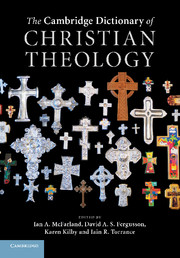J
Published online by Cambridge University Press: 05 June 2012
Summary
James, William The psychologist and philosopher William James (1842–1910) is best known as a founder of the psychological–phenomenological study of individual religious experience and the philosophical tradition known as pragmatism. In theological studies, James is best known for his books The Will to Believe (1897) and The Varieties of Religious Experience (1902). Following the publication of the former, James speculated that he should have titled it ‘the right to believe’. In it he rejected the widely accepted views of D. Hume (1711–76), I. Kant, and G. W. F. Hegel by choosing theism and the right or will to believe over absolutism, agnosticism, and determinism. James observed that for many persons religion is a ‘live option’ (defined as an unavoidable and significant choice, upon which a believer is willing to act) and defended the intellectual legitimacy of adopting a religious faith. In Varieties, he rejected objectivism and advocated a radically inclusive empiricism. He argued for the validity of sensory and religious experience and hypothesized that the human ‘subconscious’ functioned as a doorway between the ‘conscious self’ and ‘The More’ that, when open, allowed an individual to receive an experience of the ‘reality of the unseen’. For James, in both volumes, strict adherence to logical reason resulted in deterministic monistic systems, while reality – as it is shaped by free will – remains empirically pluralistic.
- Type
- Chapter
- Information
- The Cambridge Dictionary of Christian Theology , pp. 246 - 259Publisher: Cambridge University PressPrint publication year: 2011



